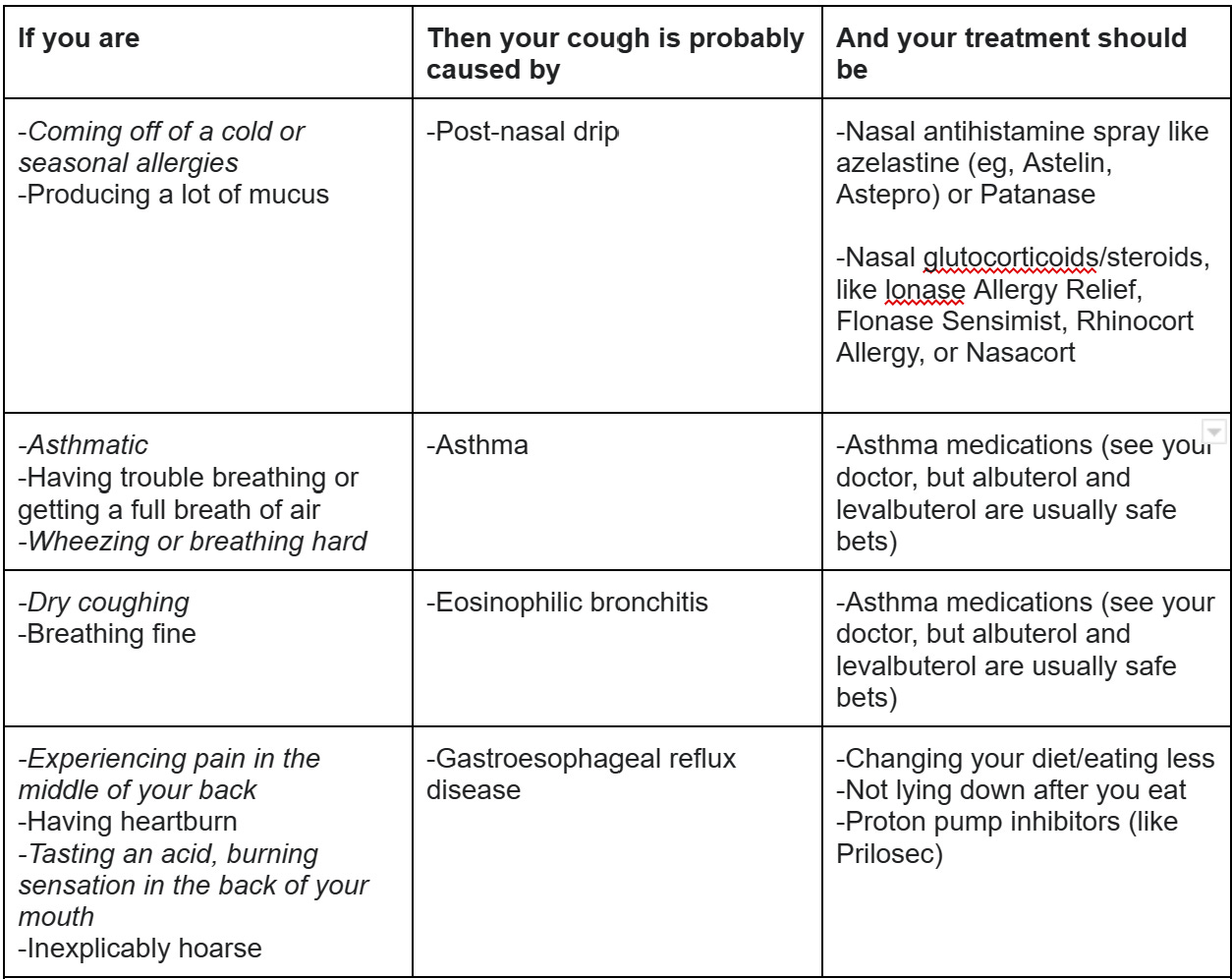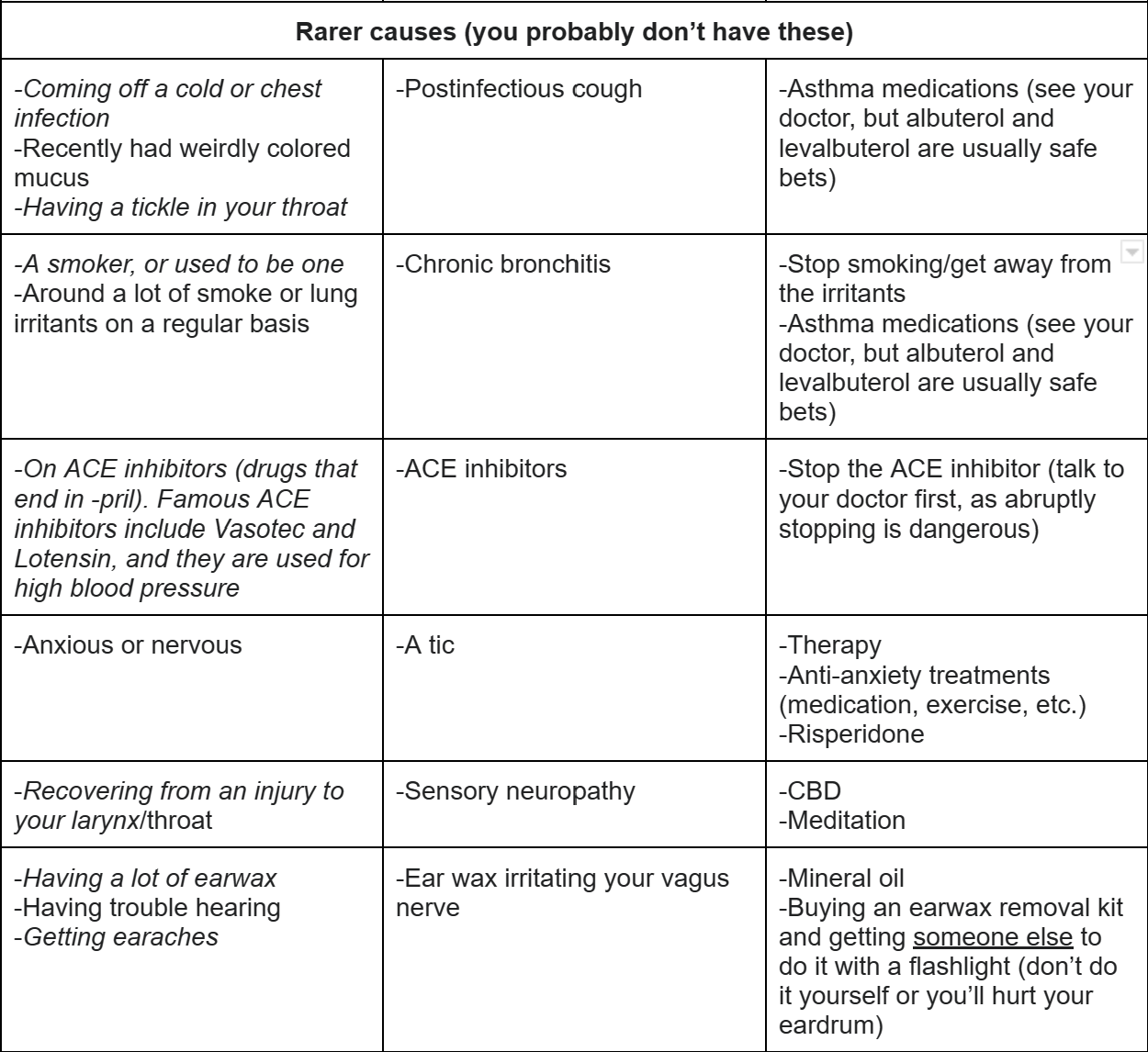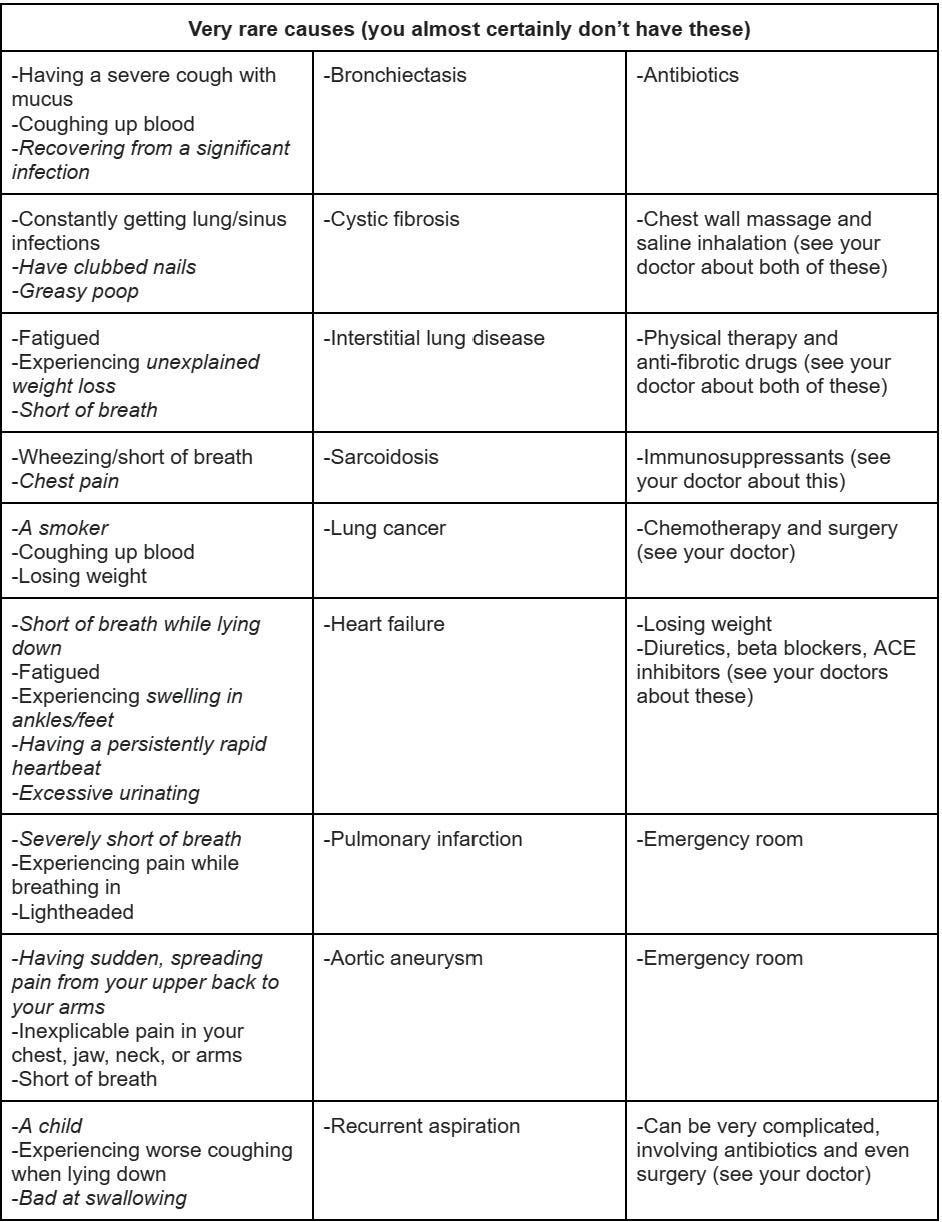A friend of mine has had a cough for about 4 weeks now. It started over vacation as a serious cough and is now just a minor cough. As the caring friend I am, I’ve taken to telling her to sending her the following meme whenever she coughs, which she much appreciates.

Anyhow, I’ve also been urging her to fix her cough as soon as she can, not just because it’s annoying (for her and for me), but because coughing, as Wikipedia reminds us, can lead to fainting, vomiting, bloodshot eyes and hernias and lower rib fractures.
This is easier said than done, however, because there’s a variety of causes of coughs. Coughing is one of the most basic ways we have of clearing our airways, and, like any basic response, there’s a lot of possible pathways (and, unlike what Reddit tells you, most of them are not cancer). Hence, the following list of how to diagnose and treat your chronic cough.
Also, a word before I begin. You’ll notice a couple things missing in the treatment column, mainly normal cough medicines like codeine, dextromethorphan (Robitussin), and guaifenesin (Mucinex). This is because the evidence for these in coughs is weak (guaifenesin) or nonexistent (codeine and dextromethorphan).
If you do want a general purpose cough medicine, I’d recommend a spoonful of honey.
Seriously. Honey trounces dextromethorphan and diphenhydramine in head-to-head cough studies, and it’s delicious.
Also, note: italics are the most important part of the diagnosis. Pay more attention to that part if you’re looking to diagnose yourself.
Also, final, final note: chronic cough is a cough that lasts 4 weeks or longer. If you’re coughing and it’s only been a week, you might just be sick.


